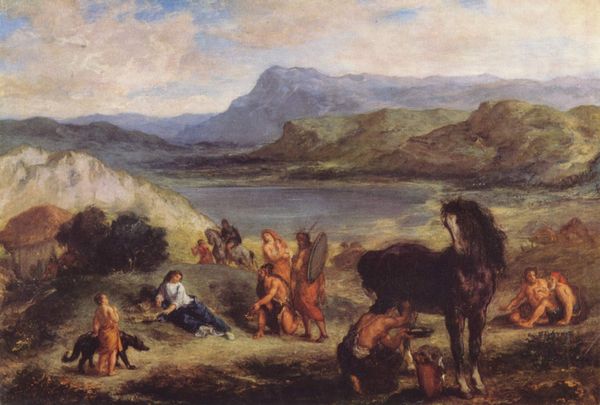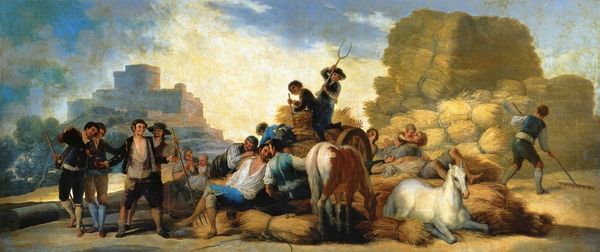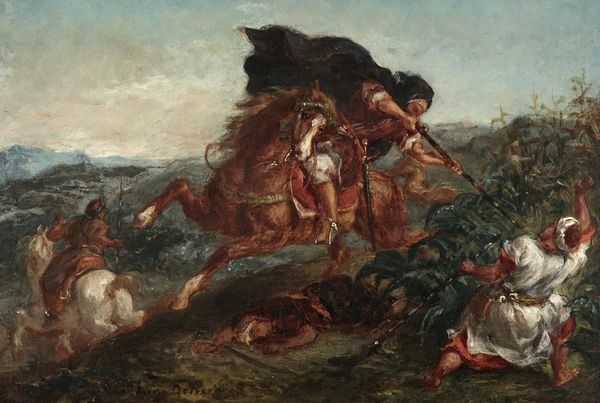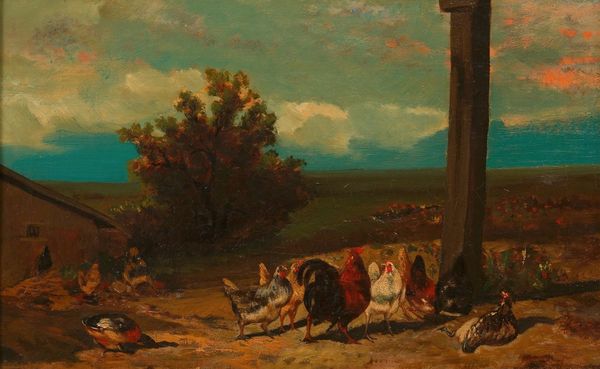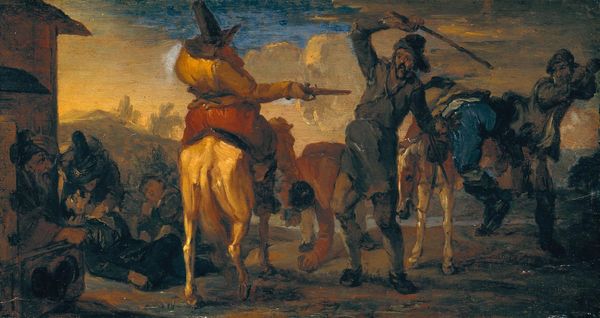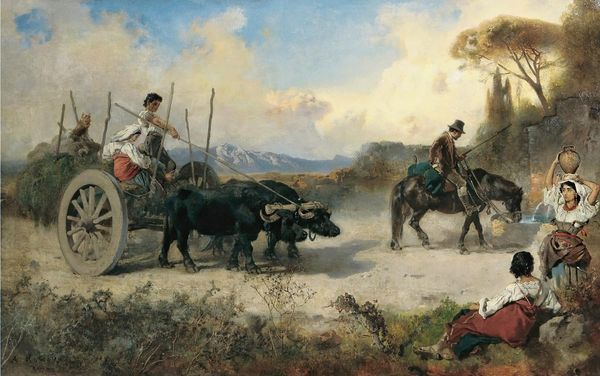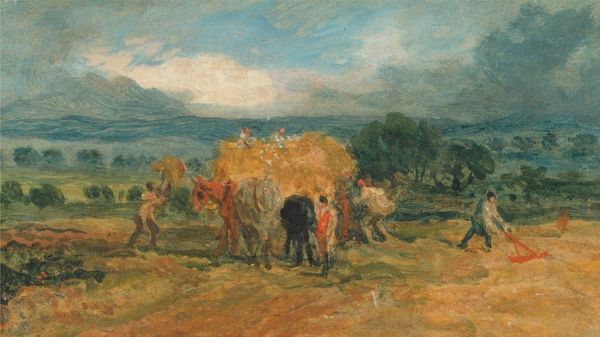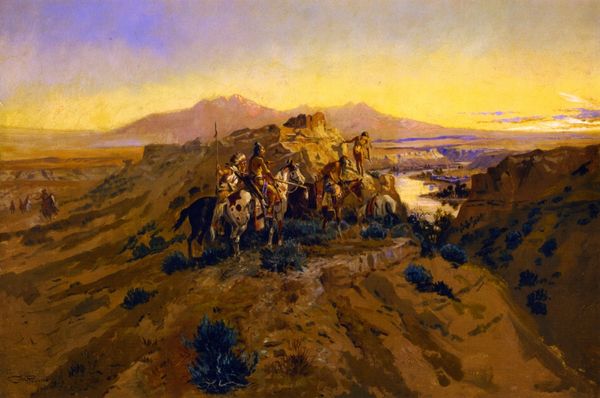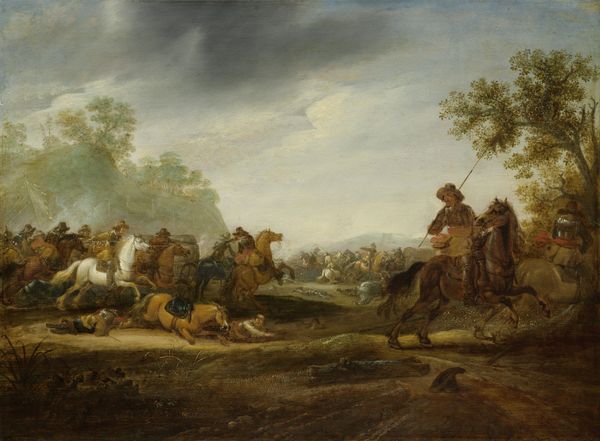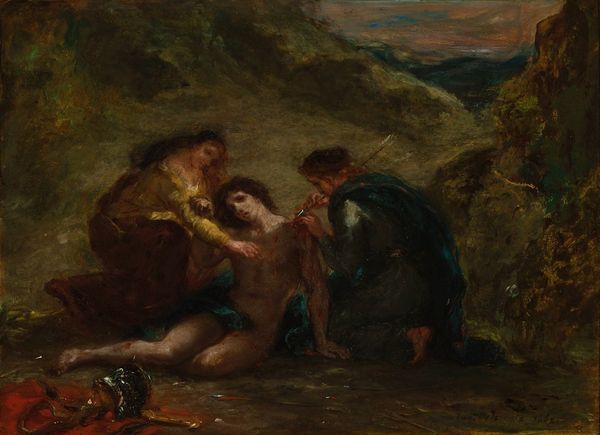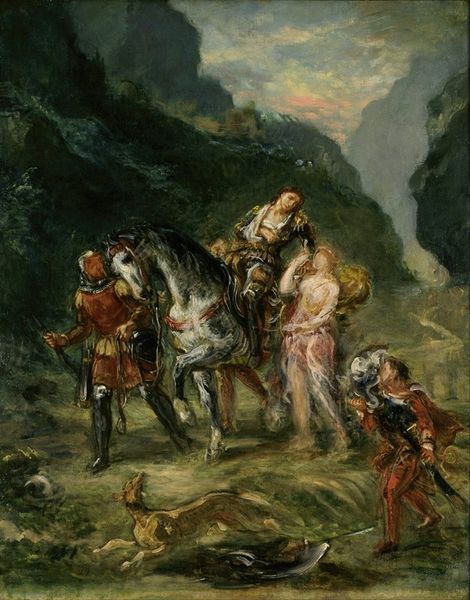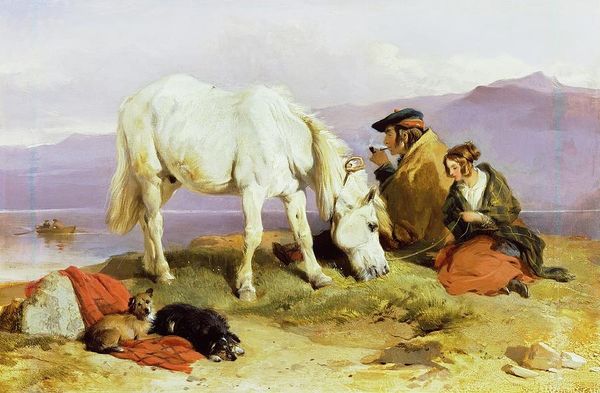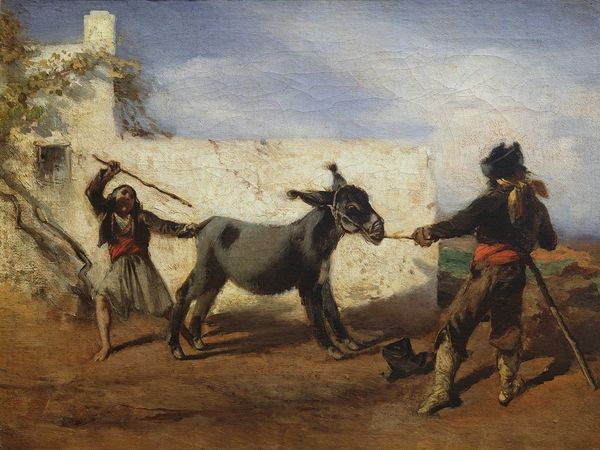
Copyright: Public Domain: Artvee
Curator: What a somber palette for such a lush landscape! There's almost a brown wash over everything. Editor: Indeed. This is "Ovid Among The Scythians" by Eugène Delacroix, completed in 1862. Delacroix painted this piece towards the end of his life. It uses oil paint to capture a landscape scene dotted with figures, which are notably romantic in style. Curator: Romantic for sure – the landscape seems to swallow them whole! Who are all these figures? Are we supposed to know them? I mean, aside from Ovid, who looks desperately out of place! Editor: Well, Delacroix chose a fascinating subject. Ovid, a celebrated Roman poet, was exiled by Emperor Augustus to Tomis, a remote settlement on the edge of the Black Sea, among the Scythians. Here, Delacroix pictures Ovid in a foreign land, seemingly disconnected from everything he once knew. Curator: That makes perfect sense. I was just struck by the way his clothing contrasts with everyone else. The others are dressed—or rather, undressed—for a completely different climate, for freedom, even. But poor Ovid's all draped and…deposed, almost. It’s interesting to frame exile not just as geographic displacement, but almost as an internal stripping. Editor: Absolutely. Delacroix explores themes of alienation and cultural displacement. Think about what it meant for a man of Ovid’s standing to be thrust into a society so vastly different. Also, consider Delacroix’s interest in the "Orient." In this and other works, the Orient comes to represent a space of barbarity or unruliness where normative rules of class and gender breakdown. Curator: It’s more than that though, isn’t it? He’s not just saying “Oh look, those crazy Scythians.” The way he paints the landscape, those misty blues in the back, makes it clear that the problem is one of irreconcilable interiority. Editor: That sense of internal struggle is so resonant. As Delacroix moves into these darker subjects, and, frankly, a more experimental application of paint, one gets the sense he’s moved past simple orientalist fascination toward something darker. He asks if exile might, in fact, be the truest reflection of the human condition. Curator: Ah, well, now you’ve gone and depressed me. I preferred when it was just about a vacation gone wrong. Editor: Perhaps that is a matter of perspective! And I imagine there will always be a space to examine such charged encounters anew, especially when the visuality is as fraught as Delacroix allows it to be.
Comments
No comments
Be the first to comment and join the conversation on the ultimate creative platform.
